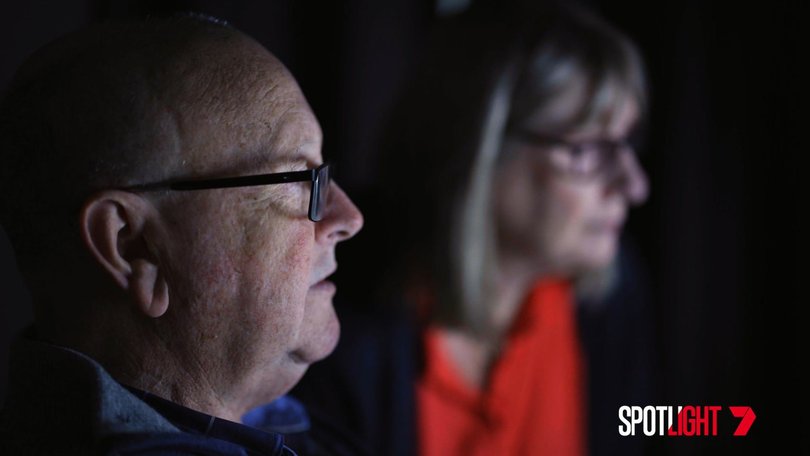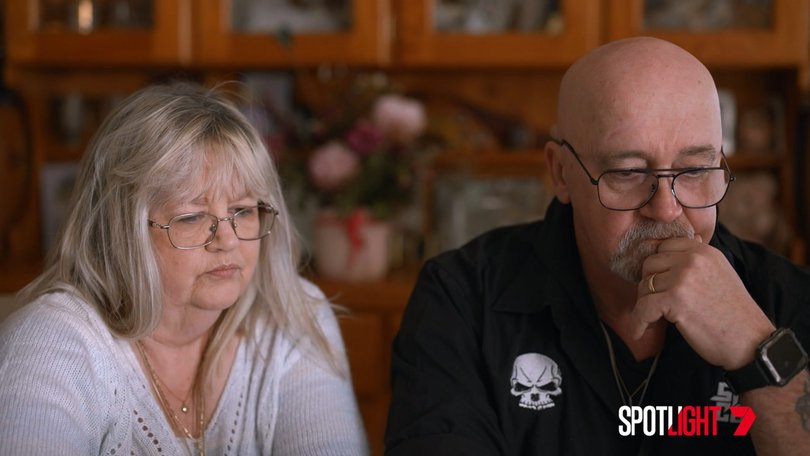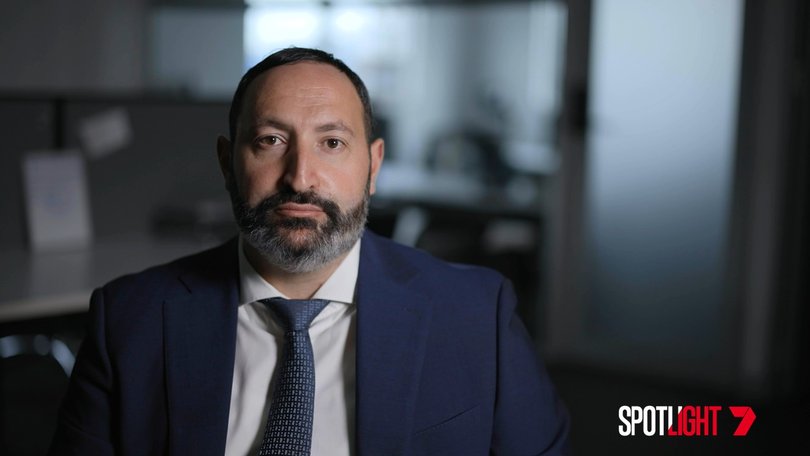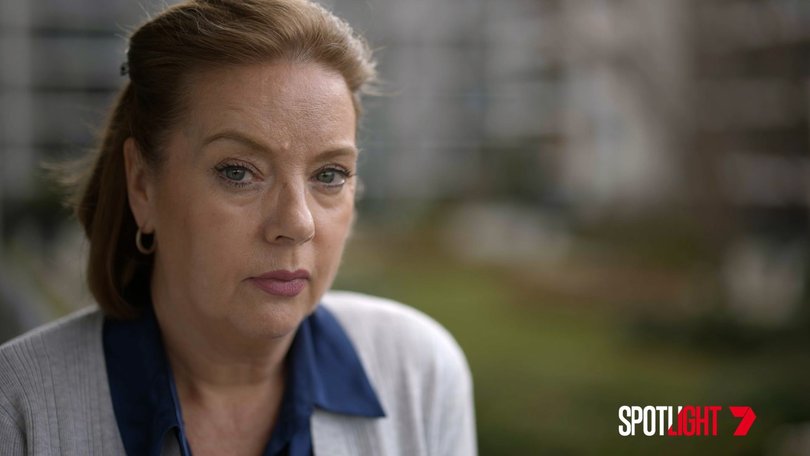First Guardian, Shield super collapse: Spotlight investigation into how $1.2b in retirement funds were lost
‘What we have seen in these matters is I would call misconduct on an industrial scale.’

Every night this week, countless Australians have woken in a sweat, crushed by dreadful, overwhelming emotions. They’re in a nightmare, but not one they can shake by simply waking.
Their nightmare is real and lasts every sleeping and waking minute, because their futures have been stolen. All their hard-earned retirement savings have been lost. Healthy superannuation balances meant to be in safe hands, have been wiped out. It’s all gone, and the scale is unbelievable.
When Garry and Michelle Thomas, from Adelaide, logged into the account in July, late one night before bed, they fell on the floor. Their $240,00 balance has gone, reduced to zero.
Sign up to The Nightly's newsletters.
Get the first look at the digital newspaper, curated daily stories and breaking headlines delivered to your inbox.
By continuing you agree to our Terms and Privacy Policy.“I think I cried all night long,” said Ms Thomas.
“Hardly got any sleep. I had to go to work the next morning, went with bright red eyes, burst into tears at work. Yeah, it was terrible. It’s the worst feeling I’ve ever had.”
If you’ve been reading the financial pages, you may have seen parts of this story, but the details have been largely obscured by a labyrinth of deceit and failures.
But the reality is worse than anyone thought. Most victims like Brad Tsoumbris, believe super is safe: “I’m one of those ones who always believed superannuation was government guarantee”.
Over the past eight months, twin superannuation schemes called Shield and First Guardian Master Funds have collapsed with catastrophic consequences. Twelve thousand Australians have lost $1.2 billion in super savings. There may be more people affected. Some may not even know that they’ve lost their superannuation yet.
How this happened, is now the subject of one of the largest financial fraud investigations undertaken by the Australian Securities and Investment Commission.
“What we have seen in these matters is I would call misconduct on an industrial scale” said ASIC deputy chair, Sarah Court. The financial regulator has forty investigators desperately trying to find who committed what fraud, and where hundreds of millions of dollars went.
The architects of the failed super funds are all facing serious penalties. Passports have been seized, assets frozen, businesses banned. Safes stacked with cash and hundreds of thousands of dollars’ worth of jewellery have been emptied and secured in raids by ASIC and the Australian Federal Police. A $600,000 Lamborghini has also been hauled away.
Mr Tsoumbris and wife Suzanne lost more than $300,000.

“To think that you work all your life to support yourself through retirement, to see somebody else just living the high life on your money,” said Ms Tsoumbris. “It’s horrible.”
But the actual whereabouts of the $1.2 billion of hard-earned super savings, swiped from everyday Australian investors, remains unclear at this moment. In relation to the First Guardian Fund, liquidators believe that of the $441 million in its accounts, only a paltry fraction has been found – about $2.2 million.
Investigators are chasing a series of bad First Guardian loans, that don’t appear to have been paid and have vaporised. Far from blue chip, balanced investments promised to clients, it appears First Guardian was shelling out tens of millions of dollars at a time to highly risky ventures. Those ventures include a restaurant group, brewery, a resort in Indonesia and multiple failed property developments.
The fund’s two main architects are Melbourne-based David Anderson and Simon Selimaj. Both are in metaphorical handcuffs with ASIC seizing pretty much every aspect of their lives. Free to walk around, but with both feet in snare traps, waiting for ASIC to build a prosecution.
The Nightly does not suggest Mr Anderson or Mr Selimaj are guilty of any crime, only that ASIC is investigating.
They were enabled by a network of financial advisers incentivised by enormous fees and marketing commissions.
One financial adviser Ferras Merhi, late on Friday, was hit with civil proceedings by ASIC, including allegations of unconscionable conduct, failing to act in the best interests of a client, giving conflicting advice and pocketing $37 million dollars in fees and marketing costs in relation to First Guardian.
“I didn’t pocket this money,” he said. “It’s not in my pocket. It’s monies that were spent on these ads that were being put on these platforms.”

“I haven’t gone and liquidated and run away and shirked my responsibility.
“I’ve stood firm responding to every single question. I don’t know what else I could do more than what I am now.”
And after copping heavy criticism for missing red flags with Shield and First Guardian activity, ASIC last week filed landmark action in the Federal Court against major superannuation platform, Equity Trustees. That put other platforms on notice.
“This is the first civil penalty proceedings that we have filed, and we’ve done that because we think the trustees do have a case to answer here for having these kinds of funds on their platforms and available to their members,” Ms Court said.
Equity, along with Macquarie, NetWealth and Diversa, all carried either Shield or First Guardian – and some both – on their platforms. Investors and some advisers argued because of this, Shield and First Guardian not only appeared legitimate, but were endorsed and vetted by top notch reliable superannuation trustees.
How it worked will give anyone reading this, and looking at reviewing their super fund, shivers. Because this wasn’t a scam, as such, and the investors weren’t dummies. There was a sophisticated chain of advice, that was hiding an alleged fraud.
It all started with targeted advertising on Google and Facebook. The algorithms made sure the right demographic were pushed to this marketing.
They offered ‘Free Super Health Checks’ or similar. Once registered, investors got a call back. The call centre staff all here in Australia, read from range of friendly and professional scripts that all suggested their super could be working better, that other funds were underperforming and at least one caller even said he’d tipped his mother into these schemes.
Once on the hook, the investors were recommended a financial adviser. Their independence and advice is now in serious question, given the Shield and First Guardian fund managers – we now know – were funnelling tens of millions of dollars of member’s money to these advisers in the way of marketing costs.
In other words, they were paying for the ads to catch the clients, and were fully incentivised to push Shield and First Guardian above other products.
Some advisers claim there was nothing wrong with this, describing it as standard practice.
However, ASIC alleges this was a breach of proper advice and worse, we found in our Spotlight investigation, evidence of at least one big adviser, changing his clients’ investment profiles from low risk and balanced, to high risk and speculative, without their knowledge.
ASIC is aware and investigating. This means that potentially thousands, if not hundreds of ‘mums and dads’ investors believing they were safely investing in a low-risk capacity, into blue chip and balanced funds, were being secretly re-scored as willing high-risk investors.
This qualified them for the sort of investing that Mr Anderson and Mr Selimaj were engaging in. If this activity by the financial advisers is found be true by ASIC, it’s outright fraud.

Victim Melinda Kee is running a Facebook group for Shield and First Guardian victims.
“This isn’t just about 12,000 Australians,” she said.
“This is about all Australians that put money in their super to be protected from your David Andersons. They’ve raped and pillaged 12,000 hardworking Australians of their life savings”
Watch the full story on 7NEWS Spotlight at 8.20pm Sunday on Seven and 7Plus.
